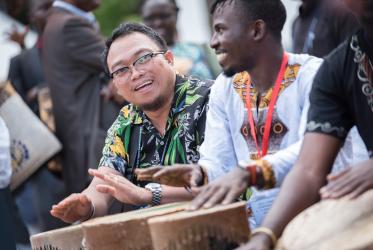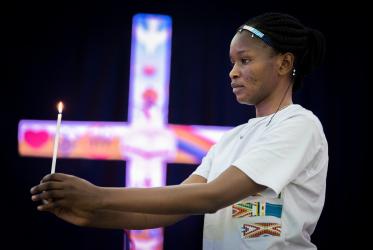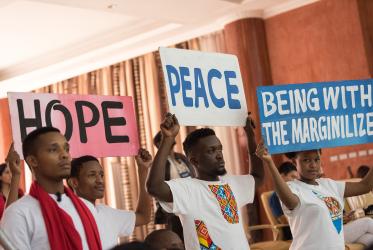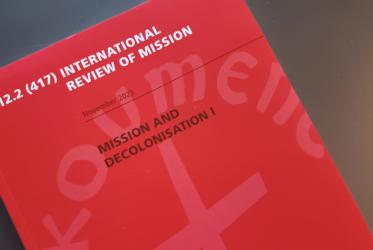Through engaging speakers and discussions, participants at a recent consultation on mission and evangelism explored ways, in which theological education and training programmes on evangelism can relate Christian witness to the changing landscape of Europe.
Organized by the World Council of Churches (WCC) programme for mission and evangelism, the 4-day consultation took place from 28 to 31 October at the Ecumenical Institute of Bossey, bringing together around thirty representatives of the European churches as well as ecumenical and educational institutions.
“Although the debate on mission or perception within the field of practical theology is continuing, there is a need to teach evangelism,” said Rev. Dr Martin Reppenhagen, vice-director at the Research Institute for Evangelism and Church Development at the University of Greifswald, Germany.
Reppenhagen went on to say that “future pastors should be enabled to communicate the gospel in the context of a secular age, enabling others in becoming ‘day by day evangelists’.”
“The fate of belief depends much more on powerful intuitions of individuals, radiating out to others,” he stressed, quoting the Canadian philosopher Charles Taylor.
Speaking on the dynamics between the local and the migrant churches, Dawit Olinka Terfassa said, “In our multi-cultural context in Europe today, we need to promote mutual learning between local and migrant churches, contextualizing evangelistic approaches to the needs of our communities.” Terfassa was representing the Ethiopian Evangelical Church Mekane Yesus, Sweden.
Evangelism guiding theological education
The participants discussed how churches in Europe “searching for genuine forms of discipleship, living and talking the good news” can be supported. They also raised questions on how their efforts can guide theological education so that it can enlighten students, missionaries, evangelists and pastors on how to be faithful to the gospel in everyday life.
The participants also reflected on future work of the WCC in the areas of evangelism and theological education, following the WCC 10th Assembly in Busan, Republic of Korea next year.
“A fresh re-imagined, renewed understanding and commitment to evangelism is important for the future of the ecumenical movement and World Christianity. Evangelism will be emphasized as the core agenda of the future work of the WCC’s Commission on World Mission and Evangelism,” said Rev. Dr Jooseop Keum, CWME secretary.
“The participants have strongly affirmed the central place of evangelism in theological education and missiological training in Europe,” said Kyriaki Avtzi, programme executive for the WCC’s mission and evangelism project.
“Through a constructive dialogue, the consultation has highlighted the importance of enhancing the place of evangelism in theological faculties and institutes,” she said. Speaking on the outcomes of the consultation, Avtzi expressed hope to “see learning from this dialogue to be effectively used by the churches around Europe.”
The group came up with a set of recommendations for future cooperation among faculties and mission projects at the grassroots, placing particular emphasis on continued training for lay people.
The consultation was the first in a series of five regional consultations, which will address the same theme in Asia, Africa, North America and Latin America.
WCC programme on Unity, Mission, Evangelism and Spirituality








